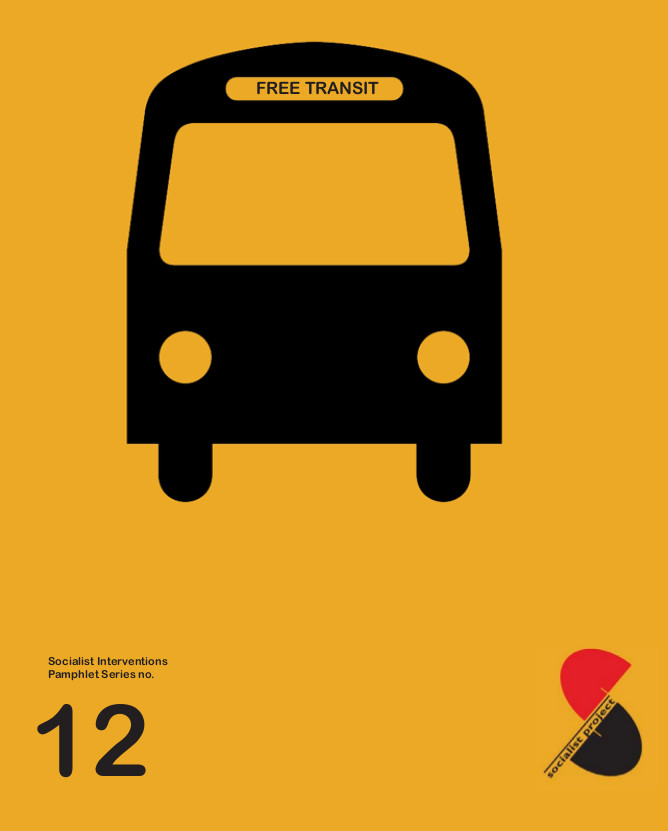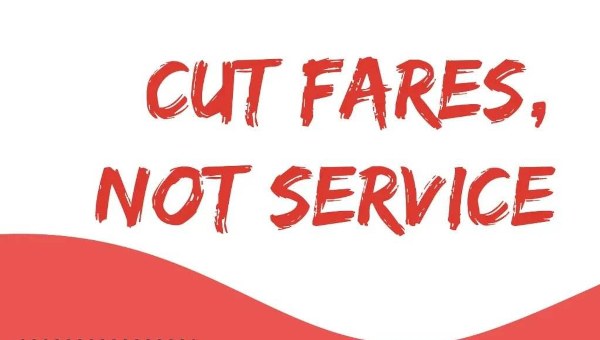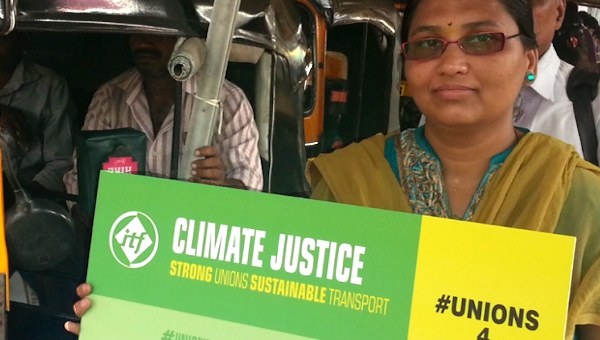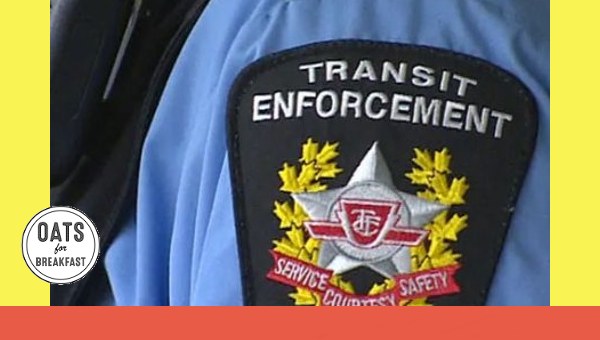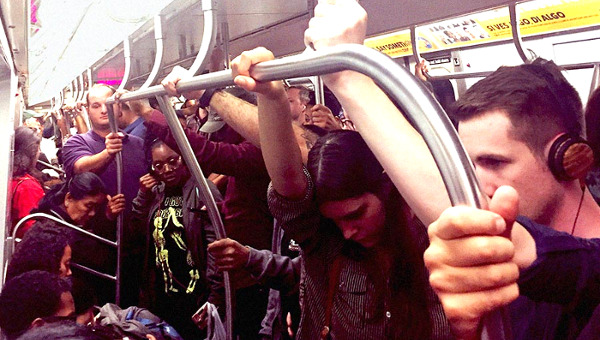Transit Coalition Outlines Key Recommendations for Budget 2023
Important asks for the 2023 federal budget include permanent operational funding for transit systems, public intercity highway bus service, and accessibility and safety improvements.
A broad coalition of unions, environmental organizations, and rider advocates released its annual pre-budget submission with five recommendations for the 2023 federal budget.
The Keep Transit Moving Coalition published five central recommendations that would improve public transit for all Canadians:
- Establish permanent federal funding for transit operations.
- Create low-carbon rural and intercity public transit through the formation of a national, intercity highway bus service, and by revitalising national passenger rail.
- Maintain previously announced capital investments in transit infrastructure.
- Deprioritize energy intensive infrastructure, by redirecting funds currently allocated for highway expansion projects toward maintaining and expanding public transit infrastructure.
- Improve accessible transit by conducting an accessibility audit of all transit infrastructure, increasing funding to local agencies to expand paratransit services, and make vehicle accessibility grants available to motorcoach operators for vehicles that are used predominantly for highway motorcoach service.
The Keep Transit Moving Coalition was founded in the spring of 2020, when dozens of organizations from across the country came together at the start of the COVID pandemic to protect Canada’s public transit systems from the death spiral of service cuts, defunding, and eventual privatisation. As the pandemic has ebbed and ridership increased, the Coalition has continued to fight for affordable, efficient, and excellent public transit for all, and sought to position public transit as a key pillar in Canada’s climate strategy.
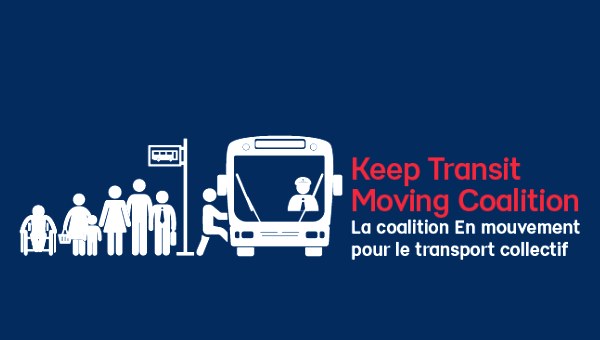
Keep Transit Moving Coalition Submission to Finance Canada 2023
Recommendations
- Establish permanent federal funding for transit operations.
- Fund low-carbon rural and intercity public transit: create a national, intercity highway bus service, and revitalise national passenger rail.
- Maintain previously announced capital investments in transit infrastructure.
- Deprioritize energy intensive infrastructure, by redirecting funds currently allocated for highway expansion projects toward maintaining and expanding public transit infrastructure.
- Improve accessible transit by conducting an accessibility audit of all transit infrastructure, increasing funding to local agencies to expand paratransit services, and make vehicle accessibility grants available to motorcoach operators.
Introduction
The Keep Transit Moving Coalition is a coalition of dozens of riders’ associations, unions, environmental and health groups from across the country. Founded in the spring of 2020, this non-partisan coalition seeks to win affordable, efficient, and excellent public transit for all Canadians. We believe transit contributes to the country’s economic vitality, to the fight against the climate emergency, and to reducing inequality.
The upcoming 2023 federal budget and anticipated just transition legislation are critical opportunities for the federal government to advance and fund a transformative vision for how we get where we need to go. That needs to mean fewer highways and more public transit.
Transportation accounts for 24% of emissions in Canada. It is essential that we prioritize a shift from high-carbon to low-carbon modes of transportation in the federal budget and climate legislation.
Transit investments are just that: investments, not expenses. According to the American Public Transit Association, every $1 invested in public transportation generates $5 in economic returns. Prioritizing public transit tackles traffic congestion, boosts the economy, creates jobs, promotes economic justice, and encourages health-promoting physical activity. It helps people of all ages, abilities and income levels to access jobs, services and recreational opportunities. Paratransit for seniors and people with disabilities is critical to the quality of life of our most vulnerable citizens, as well as the functioning of the health care system.
Having outlined transit’s vital role as a public service, economic driver, and climate solution, we submit the following recommendations as you prepare to table Budget 2023.
Detailed Recommendations
1) Establish permanent operating funding for public transit
While we applaud the government’s support for transit infrastructure as well as the 2022 announcement of an injection funds for transit operations, it is important to remember that infrastructure projects create additional financial pressure on transit agencies. After all, buses only run when there’s funding for workers to operate and maintain them. To ensure quality service and to maintain services’ affordability, we recommend the establishment of permanent federal operating funding for public transit.
As noted by the Canadian Urban Transit Association (CUTA) and the Federation of Canadian Municipalities (FCM), for every 10% drop in ridership, transit agencies lose $475-million across Canada. The pandemic has proven that transit agencies cannot solely rely on farebox revenue for funding. We urge the federal government to provide operations funding to municipalities on a permanent basis.
2) Federal funding for low-carbon rural and intercity public transit
Shifting from expanding airports and highways to expanding public intercity passenger bus and rail service is key to building a zero-carbon future.
We need rural and intercity public transit that is:
- Safe: Properly staffed and offering decent jobs for transportation workers to ensure optimum safety and guaranteed access for all.
- Sustainable: Thousands of good, green jobs in public intercity transit, giving future generations a better world.
- Promotes social justice: Workers have a voice on use of new technology and supply chains are free from abuse.
- Publicly-owned: Intercity transit, including railways and bus service, that operates for the public good, not profit, and is safely in public hands. Privatisation puts passengers, workers and our communities at risk.
2a. Funding toward the creation of national, intercity, highway bus service
Rural and Indigenous communities in Canada have been chronically underserved by public transit, creating transit deserts in which individuals are unable to travel safely to neighbouring communities for work, medical appointments, grocery stores or leisure. This situation leaves thousands of people across Canada without public intercity transportation, forcing them to commute by car, hitchhike or use unregulated ridesharing.
The Missing and Murdered Indigenous Women and Girls (MMIWG) Report highlights adequate intercity bus transit as a key step to reconciliation. A national Intercity and Highway Bus Service, with ongoing funding and operational support, would provide a Canada-wide opportunity to address the dangerous issue of isolation among Indigenous and remote communities, moving us further along the road toward a more just and inclusive Canada.
Now, more than ever, we need to invest in low-carbon public transit that will create jobs and connect people across this country to their families, communities, employment and vital services.
This service should be developed in partnership with provincial and municipal governments, Indigenous groups, transit providers, VIA Rail Canada, and related advocacy organizations. Such a service should complement and connect with existing passenger rail services, not compete with them. Provincial governments should provide additional funding and be given the option of operating routes that do not cross provincial boundaries.
2b. Revitalise passenger rail in Canada
Our national public passenger rail system, VIA Rail, continues to suffer due to a lack of long-term government funding and investments, no legislative mandate and outdated equipment and infrastructure.
The elimination of routes and reduced frequency of service means that Canadians have fewer accessible transportation options, particularly in rural and remote communities. Further, the need to share tracks and give priority access to freight results in delays that can often stretch into days.
While countries such as the U.S. and U.K. are making significant, historic investments to improve and enhance their national passenger rail networks, Canada continues to slip further behind. Canadians need a modern, affordable, reliable and safe passenger rail service.
Privatisation is not the solution and the federal government must publicly reject VIA rail privatisation. Privatising or contracting out the Québec City – Windsor Corridor comes close to contracting out the entire VIA Rail system, as the corridor accounts for more than 90% of VIA Rail passengers and close to 75% of its revenue.
Instead, the federal government should establish a legislative framework in favour of public passenger rail and secure immediate public investments to build Canada’s passenger rail infrastructure, prioritize passenger trains and improve services for travellers.
In addition, the federal government should be supporting the speedy development of high-speed rail corridors across Canada. This would entail pursuing the procurement of trains that reach speeds of up to 250 km/hr for the Windsor – Quebec City corridor, as well as federal support for two proposed HSR projects along the Calgary – Edmonton and Vancouver – Seattle corridors.
Canada is the only country in the G7 without high-speed rail infrastructure. High-speed rail in Canada’s busiest corridors would lower carbon emissions by reducing our dependence on intercity car and airplane travel while creating thousands of jobs in the process. Per passenger kilometre, heavy rail emits 75% less emissions than cars, and light rail emits 57% less.
Public investment in rail can kickstart a just economic recovery, and is key to the just transition we need in transport. Rail fuels economic and social equality through access to employment, skilled jobs and higher wages. On average, every one job created in rail creates another job in manufacturing, food, trade or other sectors.
Finally, we urge the federal government to support and implement the International Transport Workers’ Federation vision for safe and sustainable rail.
3) Maintain previously-announced transit infrastructure investments
The federal government’s capital transit fund – which supports major capital projects like new transit lines – helped move public transit in the right direction. These investments will help build a real green economic recovery. Sustained and active national leadership is needed for Canada to meet our national goals for the climate emergency, inclusion and social justice.
These investments will make it possible to meet the population’s expectations in terms of sustainable mobility. The criteria for allocating capital spending must be multiple and varied so that public transit projects can be financed in medium-sized communities.
4) Increase investment in transit infrastructure, deprioritize energy intensive infrastructure
This would include high-return investments such as bus priority lanes and transit signal priority, as well as maintenance and power-supply facilities for rapidly-growing e-bus fleets. Asset maintenance is crucial so existing infrastructure is optimally maintained and its useful life maximised. Part of this investment should come from redirecting funds currently allocated for highway expansion projects.
The Keep Transit Moving Coalition believes that the federal government should implement the Climate Emergency Unit’s proposed Just Transition Transfer, which could be used for funding climate-friendly transit projects and could also be used as a tool to discourage provincial governments from attempting to build high emission projects like highway expansions.
As Amnesty International has pointed out, simply replacing all current fossil fuel powered vehicles with electric ones will fuel mining injustice and human rights abuses with a boom in mineral mining for batteries, such as cobalt and lithium. The need to protect human rights and the fact that even non-electrified public transit emits far less greenhouse gas than cars underscore the central importance of public transit as a solution for the climate, human rights, and economic justice.
5) Improve accessible transit
Removing barriers means providing more accessible vehicles, stations and transit facilities and transit information that can be easily accessed by all. Acting on these types of measures can create truly universal transit and paratransit systems across the country.
The Canadian Transportation Agency has introduced legislation mandating public and private organisations be accessible. Transit systems, however, aren’t addressed adequately and they lack the resources to implement full accessibility.
Ensuring that transit interchanges, intercity bus stops and railway stations have sheltered, safe waiting areas with accessible washroom facilities is crucial.
All parties need to take a holistic approach when it comes to tackling mobility justice and look at all aspects of a transit system if they are going to make public transit a space where all can move around freely.
Accessibility measures we recommend include:
- Conducting an accessibility audit of all transit infrastructure across Canada
- More funding to local transit agencies to improve and expand paratransit services and ensure that these services stay public
- Make vehicle accessibility grants available to Canadian motorcoach operators, subject to a condition that any vehicle covered by grant funding must be used in highway motorcoach service for at least 80% of its service hours. •
Signatory Organizations
- Alberni Valley Transition Town Society
- Amalgamated Transit Union (ATU) Canada
- Barrier-Free Saskatchewan
- Better Transit Alliance of Greater Victoria
- Burlington for Accessible Sustainable Transit
- Bus Riders of Saskatoon
- Canadian Association of Physicians for the
- Environment (CAPE)
- Canadian Centre for Policy Alternatives
- Canadian Health Association for
- Sustainability and Equity (CHASE)
- Chase Environmental Action Society
- Climate Justice Victoria
- Climate Reality Project Canada
- Council of Canadians
- Council of Canadians- Nelson & West
- Kootenay Chapter
- David Suzuki Foundation
- Edmonton Youth For Climate
- Environment Hamilton
- First Things First Okanagan
- For Our Kids Vancouver
- Force of Nature Alliance
- Free Transit Ottawa
- Free Transit Toronto
- Green Economy Network
- Hamilton Centre for Civic Inclusion
- Let’s Ride! Make Public Transit BC Wide
- Michael Janz, City Councillor – Ward
- papastew
- MiningWatch Canada
- Okanagan Climate Hub
- Ontario Federation of Labour
- Poverty Free Thunder Bay
- Regina Citizens Public Transit Coalition
- RideFair
- Saanich Eco Advocates
- Shake Up the Establishment
- Socialist Project
- Trainsparence
- Trajectoire Québec
- Transit Action Alliance of Guelph (TAAG)
- TTCriders
- WE-CAN
- West Kootenay Climate Hub


